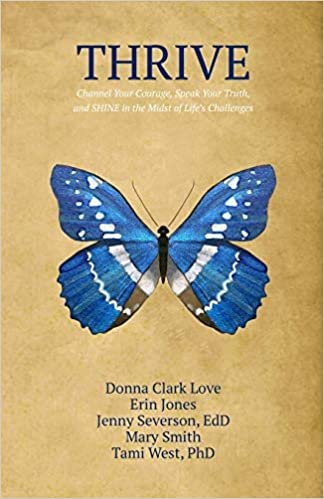What if I INHIBIT kids' emotions?
Dear EQuipped Leaders,
Last week we talked about our first option for responding when kids experience big emotions: ignoring them.
This week, I want to talk about the second option: inhibiting emotion. Like ignoring emotion, it’s not a healthy or helpful option, but it is an option. It’s also a way that we as adults often hurt kids unintentionally.
When a kid is experiencing a big emotion, he is vulnerable. He’s not in his prefrontal cortex, logical, thinking mind. He cannot be expected to reason or talk through things logically. He’s offline.
This is easy to forget.
Often, when we see a big expression of emotion, it’s scary, offensive almost. And we rush to fix it. To get the kid pulled back together. To rush to a solution.
When I think about inhibiting emotion, I think of a specific failure of kindness with a student.
Maya is a freshman, and I’m her English teacher and advisor. I know her well, and I know she is struggling. She’s an incredibly high achiever: plays multiple sports, takes all the hardest classes, serves in multiple leadership positions. And she is tough. She doesn’ take anything from anyone ever, something I actually really respect about her.
On this particular day though, she has finally cracked. One of my other advisory girls comes to let me know Maya’s sobbing in the bathroom. I’m not surprised. I know Maya isn’t sleeping because of her before and after school sports practices and then staying up half the night doing homework for her AP classes. I’ve been noticing her struggling for the past few weeks. Always exhausted, totally depleted. And now it’s all come to head.
So what am I supposed to do? I can’t remember in any of my education classes anyone teaching me what to do when a kid is breaking down in the bathroom. I was NOT EQuipped.
I brace myself and walk into the girls bathroom.
It’s hard for me to see this kid vulnerable. She’s normally so put together, so tough. Watching her sob and wipe her nose on the inside of her shirt, so exhausted and worn down, is a side of her I’d never seen before. I don’t know what to do. I’ve got 4 minutes before my next class to “fix” her, so I shift into problem-solving mode. I go logical.
“Can you go home for the day and get some sleep?”
“No, I’ve got an important test next period.”
“That doesn’t matter. You need to take care of yourself.”
“I don’t have a choice. If I’m not there today, it will affect my GPA and college acceptance. I have to be there.”
“Do you want me to go with you to talk to your teacher and work out a fair plan together?”
“No, it’s fine.” The bell rings. “I’ll just go take the test.”
She wipes her wet, splotchy face and leaves me standing there alone in the bathroom, wondering if she would have been better off if I hadn’t come in at all.
I inhibited emotion for this student. I restricted her from feeling something challenging because I couldn’t handle it. I was so uncomfortable with vulnerability, with the very human need to sometimes fall apart and cry in a bathroom, that I couldn’t show up for her. I’m sure she saw all of this in my face, my logical questioning, my tacit plea for her to pull it together and get back to class.
I knew she needed help, but I also had no idea how to be there for her. I didn’t have a model of how to calm my own anxiety, get quiet and still and just be there with the student in her struggle. I knew how to do, perform tasks, fix. I didn’t know how to just stop the machine for a minute and give this kid a little space to break down for a moment, to let her feel the weight of all she was carrying. She just needed a minute.
I regret not giving Maya the emotional, human response she needed. But you can’t give what you don’t have yourself. I didn’t know how to invite and instruct emotion for myself yet, so I couldn’t do that for her. My only tools at this point were to ignore and inhibit.
Maya never cried in front of me again. She learned the hard way, that I was not someone who could handle other people’s tears because I couldn’t handle my own yet.
I regret inhibiting her emotions. I’m also proud of myself for using that regret to grow into a more emotionally mature and softer adult. I have a lot more space for tears now, a lot more respect for sadness.
Where does this land for you today?
What was it like for you growing up? When you broke down crying, how did the adults in your life react?
Do you remember the phrases people said to you when you were at your lowest points?
How do you feel about crying now? Do you allow yourself to cry? Do you allow yourself to feel messy things like sadness?
Better EQuipped Together, Elizabeth elizabeth@appliedeqgroup.com
Elizabeth graduated with a B.A. and M.A. in English from the University of Central Arkansas. She taught English for a decade and got to read and write alongside kids in 7th, 8th, 10th, 11th, and 12th grade. The Applied EQ Group played an important role in her own personal EQ Intervention, and she is grateful to be able to spread the love and EQuip, empower, and encourage others. :)
Want to EQuip your school?
Connect with us through email or Schedule a free call with Jenny, our Director of School Partnerships, to discuss your school’s needs and if we’re a good fit for your campus.
Want to EQuip your library?
This post contains affiliate links. See full disclosure below.







